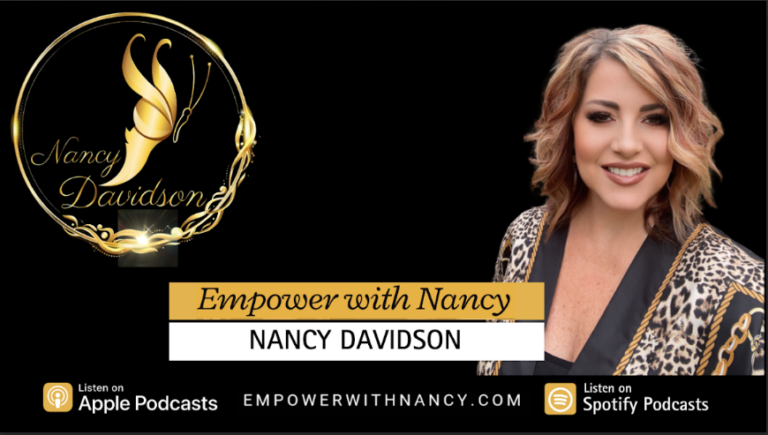Discovering the Power of Gratitude for Personal Empowerment and Growth
In the pursuit of success and happiness, we often find ourselves searching for “more”—more achievements, more material possessions, more personal empowerment & validation from others.
It can be all too easy to become consumed by external factors and overlook the simple, yet profound practice of gratitude. Gratitude, or the act of appreciating the positive aspects of our lives and expressing thankfulness for them, has the power to significantly enhance our sense of personal empowerment, well-being, and overall fulfillment.
A growing body of research highlights the multitude of psychological, emotional, and physical benefits associated with practicing gratitude. Studies have shown that people who regularly engage in gratitude exercises experience greater life satisfaction, higher levels of positive emotions, improved mental and physical health, and stronger relationships. By focusing on the things we are grateful for, we reframe our perspective from one of scarcity and dissatisfaction to abundance and appreciation, ultimately fostering a more resilient and empowered mindset.
In this article, we will explore the science behind the benefits of gratitude, and the connection between gratitude and personal empowerment. We will offer practical techniques for incorporating gratitude into daily life, shedding light on how this powerful practice can transform our perspectives, cultivate a deeper sense of fulfillment, and support us in achieving our personal and professional goals. Finally, we will discuss the invaluable role of a self-empowerment coach in guiding individuals on their journey towards developing a consistent and meaningful gratitude practice.
Whether you are a seasoned gratitude practitioner or new to the concept, this article will provide valuable insights and guidance to help you unlock the transformative power of gratitude and harness it for personal empowerment and growth.
Gratitude Defined: Understanding the Meaning and Implications of Gratitude
Gratitude is the deliberate practice of acknowledging and appreciating the positive aspects of our lives, both large and small. It involves recognizing our good fortune, expressing thankfulness for the things we value, and focusing on the abundance we already have. By adopting an attitude of gratitude, we cultivate a mindset that acknowledges the goodness in the world, even amidst life’s inevitable challenges and setbacks.
In essence, the practice of gratitude involves shifting our attention from what we lack to what we already possess. This powerful mental shift can foster greater contentment, resilience, and personal empowerment, enabling us to create a more fulfilling and meaningful life.
The Science of Gratitude: Psychological and Physiological Benefits for Mental, Emotional, and Physical Well-Being
Numerous scientific studies underscore the significant benefits of practicing gratitude, ranging from improved mental health to enhanced physical well-being. Some key advantages of embracing gratitude include the following:
- Enhanced Psychological Well-Being: Research indicates that individuals who regularly practice gratitude report higher levels of life satisfaction, happiness, and overall well-being. Gratitude helps cultivate positive emotions and reduces negative emotional states such as anxiety, envy, and regret.
- Reduced Stress and Greater Resilience: Gratitude has been linked to lower stress levels and an increased ability to manage adversity. By focusing our attention on the good in our lives, we are better equipped to navigate life’s challenges and bounce back from setbacks.
- Improved Physical Health: Gratitude has been associated with better immune function, lower blood pressure, and improved sleep. Grateful individuals also tend to engage in healthier habits, such as exercise and regular medical check-ups, which contribute to overall physical well-being.
- Strengthened Relationships: Practicing gratitude can enhance our connections with others, as we are more likely to express appreciation, offer support, and engage in empathetic behaviors. In turn, this helps to nurture and strengthen our social bonds and networks.
Practical Techniques for Cultivating Gratitude in Daily Life
There are several practical methods for incorporating gratitude into your daily life, which can help foster the transformative shift towards personal empowerment and growth. Here are four techniques you may consider adopting:
- Keep a Gratitude Journal: Dedicate a few minutes each day to writing down the things you are grateful for. This simple practice can help to reinforce a positive outlook and shift your focus towards the blessings in your life.
- Practicing Mindfulness: Mindfulness meditation encourages you to be present in the moment, fostering an awareness and appreciation for your present experience. By cultivating mindfulness, you can enhance your sense of gratitude for the immediate, everyday aspects of your life.
- Express Appreciation to Others: Make a conscious effort to express gratitude to the people in your life. Thank others for their kindness, support, or even just their presence. This not only strengthens relationships, but also reinforces your own attitude of gratitude.
- Develop Gratitude “Habits”: Incorporate gratitude practices throughout your day. For example, begin each morning by reflecting on something you are grateful for, or express gratitude during mealtimes. By making gratitude a regular part of your routine, you will be more likely to maintain a grateful mindset.
The Connection Between Gratitude and Personal Empowerment
Embracing gratitude can profoundly impact our sense of personal empowerment in various ways. By focusing on the positive aspects of our lives and expressing appreciation, we foster an empowered mindset that:
- Enhances Self-Awareness: Gratitude helps us to recognize our own strengths and achievements, bolstering our self-confidence and sense of self-efficacy.
- Encourages Growth: By acknowledging the abundance we already possess, we become more open to opportunities for growth and learning in all areas of life.
- Inspires Action: Grateful individuals are more likely to engage in prosocial behaviors and contribute positively to the world around them, fostering a sense of purpose and empowerment.
- Promotes Adaptability: When we recognize the inherent goodness in our lives, even during difficult times, we cultivate resilience and adaptability. This allows us to navigate challenges with confidence and courage.
How a Self-Empowerment Coach Can Guide You in Developing a Gratitude Practice
A self-empowerment coach can be an invaluable resource in helping you to develop and maintain a consistent gratitude practice. They can:
- Help you identify and overcome obstacles in cultivating gratitude, such as negative thought patterns or limiting beliefs.
- Provide guidance on effective techniques for practicing gratitude that align with your unique circumstances and preferences.
- Offer support, encouragement, and accountability as you work to establish and maintain a gratitude practice.
- Assist you in further developing your personal empowerment journey by incorporating gratitude into your overall growth and well-being plan.
Conclusion
The transformative power of gratitude cannot be overstated. By regularly practicing gratitude, we can unlock a greater sense of personal empowerment, resilience, and overall well-being. Implementing practical techniques for cultivating gratitude, and enlisting the support of a self-empowerment coach, can further enhance our journey toward personal growth and fulfillment. That’s exactly what Nancy Davidson is here for. She can provide the guidance and support needed to establish and maintain a gratitude practice, helping you to cultivate a positive mindset and enhance your overall well-being. Make Nancy Davidson your self-empowerment coach and partner on your journey to living a more grateful and empowered life. Start the conversation today!





Leave a Reply
Want to join the discussion?Feel free to contribute!